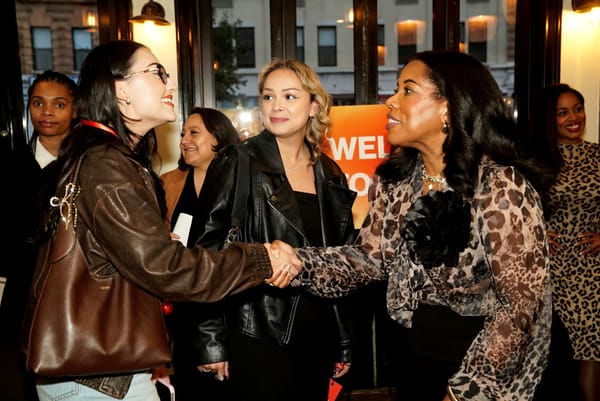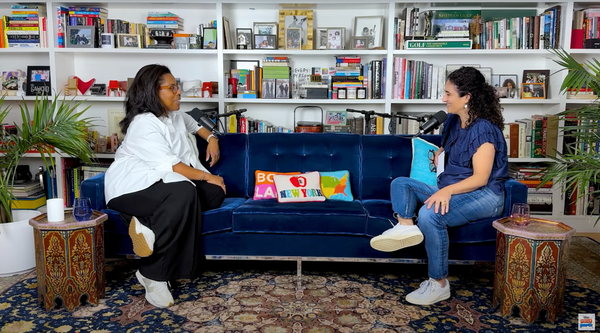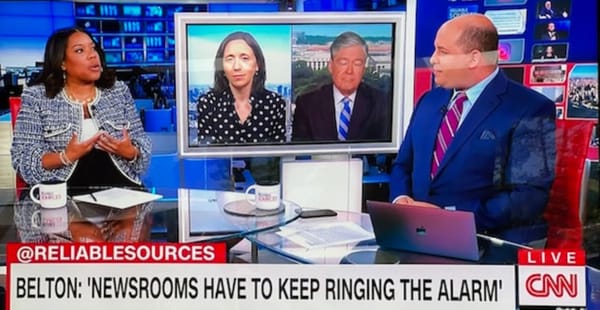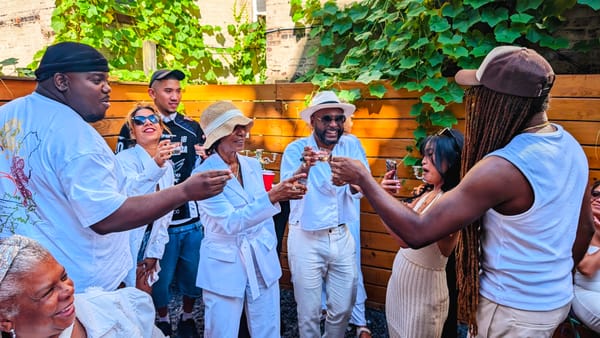Fail Fast, Fail Early for a Down Payment on Future Success
I lost. But what is a loss, but a lesson persevering?
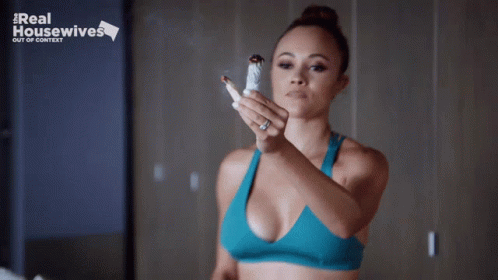
Editor’s note: Just me saging everything after I jacked it all up again!
Why wait to ruin your life (temporarily)?
I didn’t! I did most of my professional (and personal) screwing up young, to get it all out of the way so I could learn those hard lessons from those losses, then apply them to future wins. Did I do this by design? God no. I had the misfortune of battling severe mental illness and being in and out of mental hospitals for most of my 20s after my failed marriage at 23. It kind of threw a monkey wrench in my fledging career as I tried to balance covering grisly homicides, Buck Owens, and bunny beauty pageants as a newspaper reporter in Bakersfield, Calif.
When I was learning the basics of writing and reporting, while drawing illustrations, going to local plays, and doing bar reviews for The Bakersfield Californian, I was struggling with loneliness, PTSD, depression, anxiety, agoraphobia, panic attacks, and hypomania. Despite the fact that literally every year I lived there I had to take a leave of absence from work to deal with my mental health issues, my life in Kern County as a staff writer for The Californian was a seminal experience that helped make me who I am today.
My old city editor Bob Christie used to call me his “star,” because when I was well, I was amazing. Juggling multiple stories a day. Always meeting my deadlines, sometimes early. Hitting the pavement as initially an education reporter, then a general assignment reporter, and later, an entertainment reporter, blogger, and columnist. Always turning in my stories early and willing to do whatever it took to get a story, even if it meant confronting my fears — like reporting on forest fires deep in the wilds of the mountains surrounding the Kern River Valley even though my agoraphobia made me afraid of the wilderness and wide-open spaces, or chasing down the story of a former vice principal accused (and later convicted) of murdering his entire family by convincing the mother of his surviving child to talk to me by opening about my own controlling past relationship.
My talent as a reporter was that when I was on, I was creative with my turn of phrase, outgoing, empathetic, sharp, and tenacious. I was also pretty good with a camera, so I could be sent out on my own without a photographer in a pinch. Twice in my career in Bakersfield, my snaps made A1 — one of a troupe of Mexican indigenous dancers performing and another of a scene from a homicide in the mountains. A people person, I had the gift of gab and could almost always get a person to open up about almost anything. Mostly because I was willing to open up as well and always saw my interview subjects for their humanity.
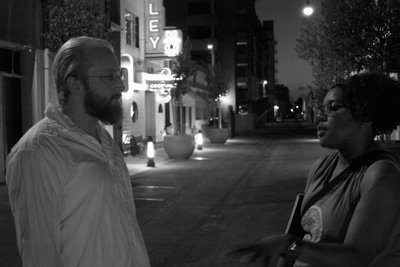
The problem was I had no understanding of what a work-life balance was back then, so I would work 12- or 14-hour days, then go home and work on my songwriting, screenplays, novels, and short stories until midnight or later, getting, at most, 3 or 4 hours a sleep a night. My way to cope with stress? Drinking and staying out late at bars, which, like a good little worker bee, I totally just turned into content, choosing to write humorous reviews of local haunts.
Because I ran myself so ragged, when I crashed I would hit hard. Once, when I was an entertainment reporter, I fell asleep in my editor’s face during a pitch meeting. Upset and insulted, she snapped at me, but when she told my then-executive editor what happened, he immediately worried about my health because it was so out of character for me. He, along with my editor, confronted me and made me take the rest of the week off to see a doctor, much to my consternation, as I was unwilling then to accept I had a problem.
I started out my career like a lot of journalists did back then, struggling to pay the bills at small-town newspapers, paying dues while going deeper and deeper into debt. My father constantly lamented how I needed to make more money, not really understanding that journalism, because it is so competitive, is not the best-paying field when you start out and there’s no real way around it unless you went to a well-connected school or come from some kind of “My dad is a news anchor for NBC” level of privilege. I went to SIUE and my parents consisted of an engineer turned middle manager and a former school teacher who knew no one.
But my ambition was greater than all that. Greater than my circumstances or background. I was willing to do whatever it took to make it as a writer and move up because journalism was everything to me, as I’d been a news junkie since I was about 11 years old.
My ambition, coupled with my lack of work/life balance, and compounded by my burgeoning Bipolar disorder, lead to my downfall. After 5 years wandering the desert of Central California, I left The Californian feeling defeated because I couldn’t reconcile my mental health issues with my career and how shoddily I lived my life. I gave up journalism because I was convinced my career was what was making me sick. A year afterward I would hit the lowest point in my life — working as a seasonal worker at Macy’s in a dying mall in Florissant, Mo., using my mass communications degree to fold sweaters.
I was 32.
When my classmates from high school and college were getting married, starting families, and building careers, I was divorced, broke, and under-employed, dealing with crippling mental health issues, wishing I was dead, but being stubbornly still alive because I knew I couldn’t do that to my parents, who at the time were supporting me, praying, hoping and working to make me well again.
But all this pain ended up being instructive. All the tears, tragedy, and mistakes lead to me eventually getting a doctor who explained that giving up my career for my mental health was just as bad for me as working myself ragged for $34,000 a year. I needed to get back out into the world but with the understanding that no one can work 14-hour days and not pay a price.
Back in 2021, I gave a commencement speech to the Craig Newmark School of Journalism at the Times Center in New York City. I chose to speak to the students about my history with failure, telling them the whole story of my four hospitalizations, failed marriage, and all the jobs I struggled with, quit, or got laid off from. I did this because, to me, it can’t be said enough — you can’t make an omelet without breaking a few eggs, or in my case, all the eggs, plus the skillet and the stove.
Living like The Little Engine That Could, but with a touch more delusion and a lot more phobias, I just kept telling myself ‘I think I can’ until I could. And I did. But it all came with its trade-offs and costs. A heat-seeking missile, aiming for the top, I did not stop for anything. Not for a man. Not for a family, fearing these things were both too expensive and too difficult of a dream to pull off while trying to make it as a Black woman in this industry.
After all, I couldn’t have moved the 10+ times I’ve moved in my life to the 8 different cities I’ve lived in while also trying to parent someone. If you want to get somewhere fast, go alone, was my mantra and so I went it alone.
I repurposed my commencement speech last week for a mentorship session at my work, where talked about failure to employees at BuzzFeed, Inc., and how I used my mistakes to propel me, learning from them.
I told my colleagues that when encountering failure always:
- Assess: What was lost? What was gained?
- Turn life’s “Ls” into lessons. How was this failure instructive? How can it be applied towards future success?
- Know when to walk away or pivot (not all paths are meant for you)
- Have a backup plan! (This is one where I was very much like, do as I say, not as I do. I’ve left a situation too many times with no plan!)
- Be thankful for what you do have and what you did gain from the loss
- Get back up with your newfound knowledge and try, try, try again
And lastly, one that I forgot to include, you’re going to screw up again and that’s OK. Just do 1 through 6 over and over until you finally stick the landing.
I’m grateful for my failures as much as I am for my successes, as they’ve all made me the person I am today, and I love who I am. Don’t be afraid to become who you love too by screwing up a little. Or a lot.
Basically, just “whatever it takes” Avengers: Endgame-style until the job is done. Just don’t do what I always do after I climb a mountain, which is immediately go looking for another, even taller mountain. Like, enjoy the view once and a while.
I know I’m trying to after more than two decades of this.
